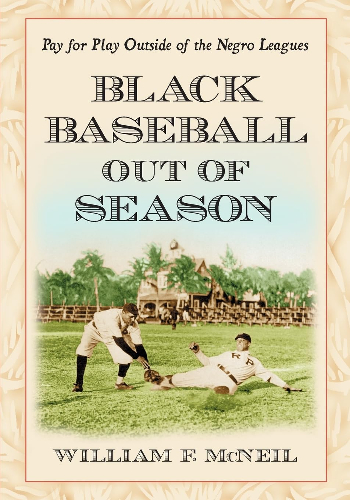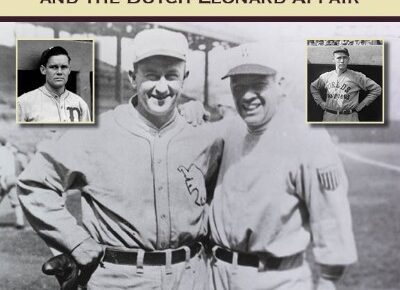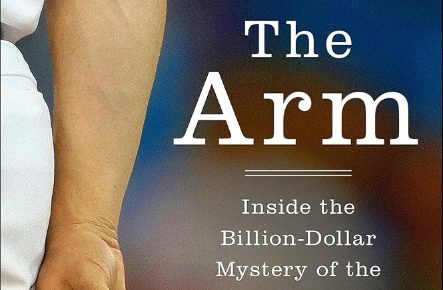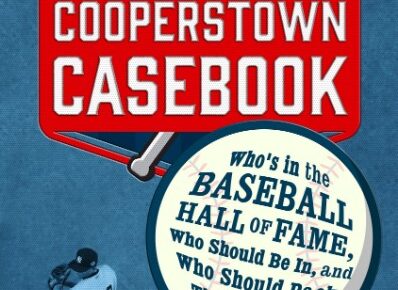2007 wasn’t that long ago, only 17 years if my math is mathing correctly. Yet, Black Baseball Out of Season feels so much older than that. Most of that comes down to the writing style employed by the author, William F. McNeil. In that sense, I have no complaints and anyone who is a student of baseball history, especially the Negro Leagues, will find great value in the bulk of McNeil’s book. However, there are some hurdles when it comes to McNeil’s personal opinions and those are not so easily overcome.
Black Baseball Out of Season is extensive. Traveling around the globe to offer tales, statistics, and results from leagues in the United States of America, Mexico, Cuba, Venezuela, and more. The sweeping scope of McNeil’s work is its best attribute. He hits on so many players in so many leagues in a vast array of locations. The book feels like a journey through the baseball landscape of the early days of the Negro Leagues to their end and beyond. Plenty of quotes are provided to give the stories a personal flare. If you think there are only so many times you can hear about Satchel Paige being a rascal, let me tell you, you are wrong. McNeil inserts quotes and frames players and coaches in such a way that they feel alive.
The above approach lends itself to McNeil’s stylistic choices. Black Baseball Out of Season isn’t a narratively driven book. Rather, it is a collection of stories and statistics that are presented in a mostly chronological fashion and broken up by regions of the world. For the most part, McNeil matter-of-factly presents information. His approach would be out of place in modern baseball writing, even that of a historical nature, where the focus is on shaping a narrative as opposed to offering large chunks of information. However, by centering the information in the personal quotes and recounts about what people saw the players do, McNeil presents a book that is compelling without any sort of driving narrative attached.
Where McNeil loses me a bit is in the moments where he inserts his personal opinion. I’m not opposed to personal opinion in a historical text, in fact, more often than not I prefer that personal opinion and contextualization are presented. What I take umbrage with is when the personal opinion presented is flat-out wrong. At numerous times McNeil alludes to the playing level and status of both the Negro Leagues proper as well as the various other leagues. He does so by aligning them with the classic Minor League Baseball levels. That approach doesn’t bother me, but I said MiLB levels, and not Major League Baseball levels, because McNeil makes it clear that none of the leagues presented are major leagues and neither are the Negro Leagues. That is most likely McNeil conforming to the stance MLB and groups like the Society for American Baseball Research had taken up to the publication date of Black Baseball Out of Season. Still, it was wrong when MLB and groups like SABR denied the rightful status of the Negro major leagues as major leagues and it’s wrong when McNeil does it as well. They were major leagues, we knew that back in the 1920s, it was ridiculous that any historical work published in 2007 that was tangentially related to those leagues still presented the Negro major leagues as lesser than the white major leagues.
That brings us to my biggest issue with McNeil’s opinions, the classic holding up of MLB as the standard by which to judge the legitimacy of the Negro major leagues. People don’t like to hear this, but such a stance is inherently racist. Why are we saying the all-white leagues are the standard bearers and the all-black leagues need to measure up to them? Why isn’t it the other way around? I feel it should be presented that the white major leagues and the Negro major leagues were both flawed thanks to the lack of participation of all major league-level players. Still, it bothers me that even historians of the Negro major leagues feel they have to present the argument as to whether the Negro major leagues measured up to the white major leagues. If you’re starting your argument from a place of the white major leagues being superior, you’ve already made your argument, whether you realize it or not.
My issues with Black Baseball Out of Season are rather large. That being said, it’s still a book I would recommend. The stories, quotes, and journeys are all worthwhile. McNeil may falter when it comes to his implicit bias showing a little too much. At the same time, he still presents a collection of remembrances that are compelling and speak to the skill found in, vibrant personalities taking part in, and the attractiveness of all these various leagues that employed Negro major leaguers in their offseason. Black Baseball Out of Season is far from perfect, but for anyone interested in baseball history it’s a title to seek out and read.
Lead image courtesy of Unknown – McFarland & Company




